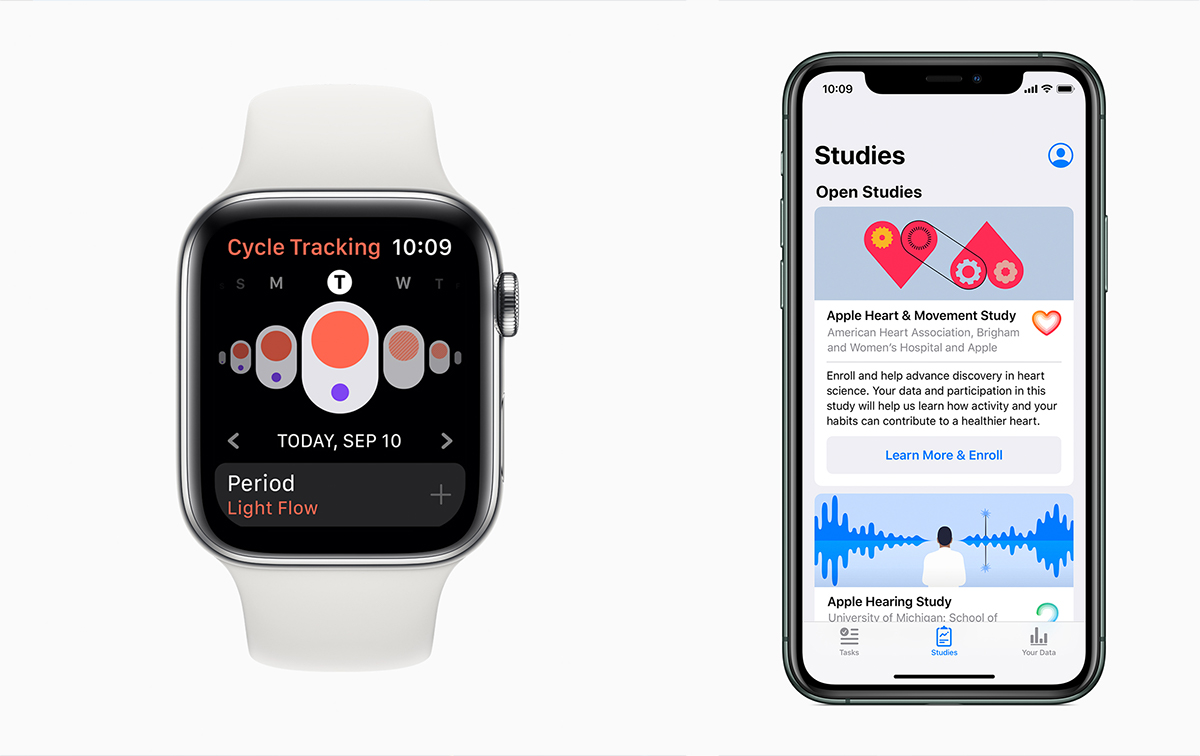Apple’s live stream event yesterday had plenty of highlights which a host of other media outlets will be happy to cover in detail for you. Given my personal background and interests the item that most caught my attention was the unveiling of a Research App and the announcement of a Women’s Health Study to be conducted in partnership with Harvard and the National Institute of Health.
With my colleague’s recent article covering Facebook’s sharing of women’s period and sex-life information with marketers still fresh in my memory, my first thought was “well, at least the research app is opt-in and I’d certainly prefer that medical researchers use the data instead of handing it over to companies trying to guess the right week to target me with tampon ads.”
Michelle A. Williams, a reproductive epidemiologist and dean of the faculty at the Harvard T.H. Chan School, reinforced the fundamental scientific need for an increase in women’s health research in a post from Apple’s newsroom stating, “Women make up half of the world’s population, yet even today there has been limited investment in studying their unique health needs.”
If the lack of historical research regarding women’s unique health needs surprises you I’d highly recommend checking out Caroline Criado Perez’s work. She’s an author, campaigner and subject of a recent 99% Invisible podcast episode, who beautifully covered the gender-data-inequality pervasive in many research fields in her book, Invisible Women: Data Bias in a World Designed for Men.
The greatest possible upside to this endeavor is, of course, the knowledge we may gain from the broad pool of participants and epic quantities of data the researchers may have available to them. As Dean Williams explained in the apple newsroom piece, “This study, unprecedented in scope, will greatly advance our understanding of the biological and social determinants of women’s health, and lead to better health outcomes.”
As wonderful as I believe it is to finally be focusing attention on increasing female health data use in research, the study as described also has some clear limitations. If the data used for this research will only be collected from women in North America who have the means to purchase apple products, how might that skew the results? Will conclusions drawn based on that population segment prevent researchers from gaining insights that might more broadly apply to women of all socio-economic backgrounds? Also, as Nikhil Subramaniam of INC42.com points out in his reaction piece, what about women in developing markets?
The truth is, people are human, any study we create is bound to be imperfect in some way shape or form, and this sounds like a promising step in the right direction when it comes to including women in medical data collection and research practices. However, I truly hope this is only a first step and that more-inclusive attempts at understanding women’s health are still to come.
Header Image: Apple
Andrea earned a Bachelor of Journalism from the University of Missouri-Columbia, an MA & MBA from Southern Methodist University and, most recently, a Master of Social Work with a concentration in Direct Practice Health Services from The University of Texas at Arlington.

Well, at least the data I noticed was being collected by Apple without my knowledge after my phone update will be used for good.